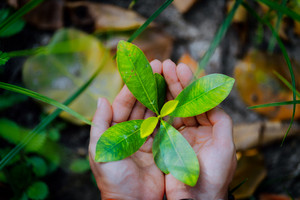Introduction to Zero Waste:
Zero waste is a lifestyle that focuses on reducing the amount of trash we produce and finding ways to reuse or recycle items instead. It’s all about being mindful of our consumption habits, making sustainable choices, and minimizing our environmental impact. As consumers, we have the power to make changes in our daily lives that can help protect the planet for future generations. By adopting zero-waste practices, you can reduce your carbon footprint, save money, and live a more eco-friendly life.
Reduce, Reuse and Recycle: The Three R’s of Zero Waste:
The three R’s are at the core of any zero-waste strategy. Reduce means cutting back on unnecessary purchases and using reusable products whenever possible. For example, switching from disposable coffee cups to a reusable mug or bringing your own bag when shopping can significantly reduce the amount of waste you generate. Reusing involves finding creative ways to repurpose items rather than throwing them away. Upcycling, where you turn old materials into new ones, is a great way to do this. Finally, recycling allows us to turn everyday objects into new products, which reduces the need for virgin resources and conserves energy.
Composting for Beginners:
Composting is an easy and effective way to reduce food waste while creating nutrient-rich soil for gardening. All you need is a compost bin, some shredded paper or wood chips, and organic matter like fruit and vegetable scraps, leaves, and grass clippings. Composting not only helps cut down on landfill waste but also provides valuable fertilizer for plants. If you’re unsure how to start composting, check out online guides or attend a local workshop to learn more.
Sustainable Shopping Tips:
When it comes to shopping, choosing products made from sustainable materials is key. Look for items made from recycled content, organic cotton, bamboo, hemp, or other renewable resources. Avoid buying single-use plastics, such as straws, water bottles, and grocery bags, and opt for reusable alternatives instead. Also consider supporting companies that prioritize environmentally friendly practices, such as using green energy or reducing their carbon footprint.
Conclusion:
Adopting a zero-waste lifestyle may seem daunting at first, but with a little effort and planning, anyone can make small changes that add up to a big difference. From reducing waste through recycling and composting to making sustainable shopping choices, there are many simple steps you can take to live a more eco-friendly life. Remember, every little bit counts, so don’t be afraid to get started today!



